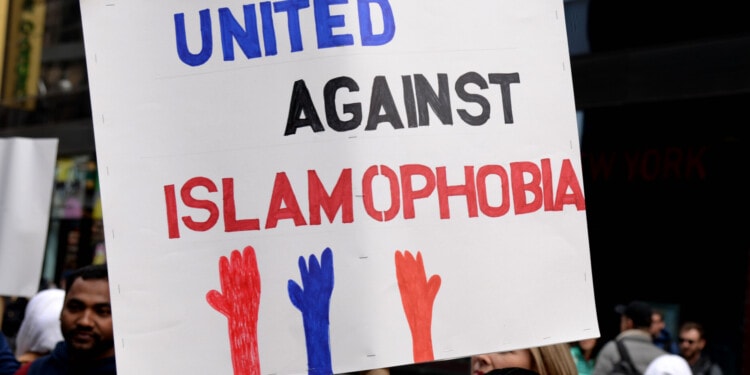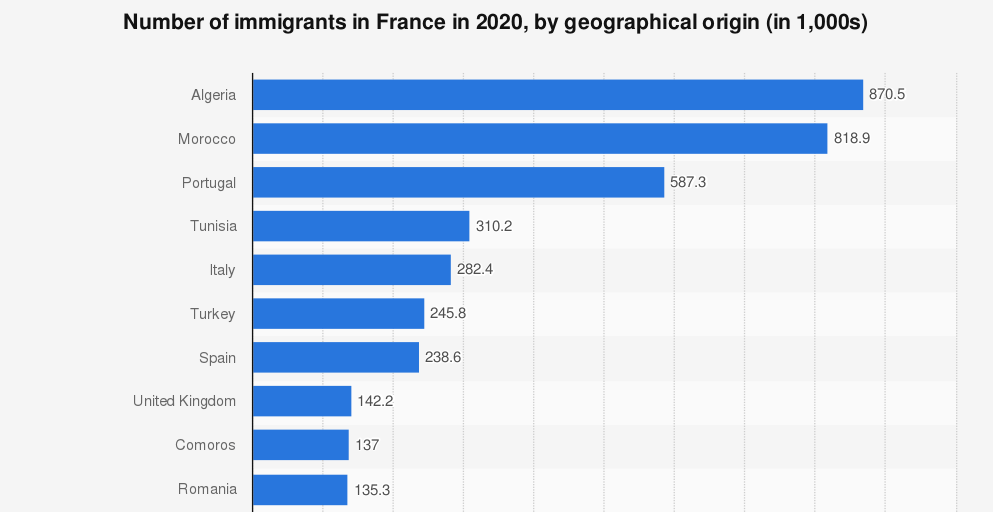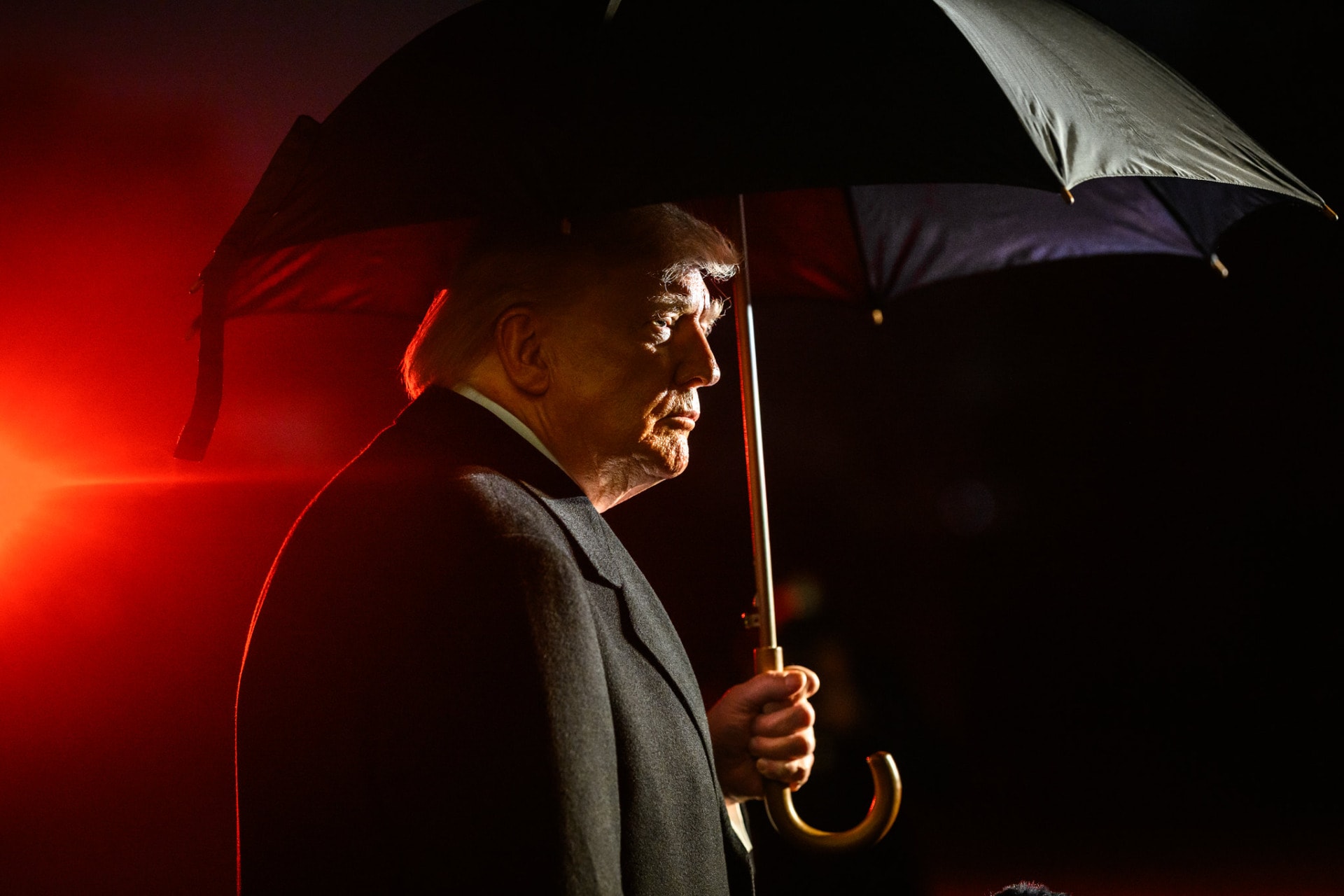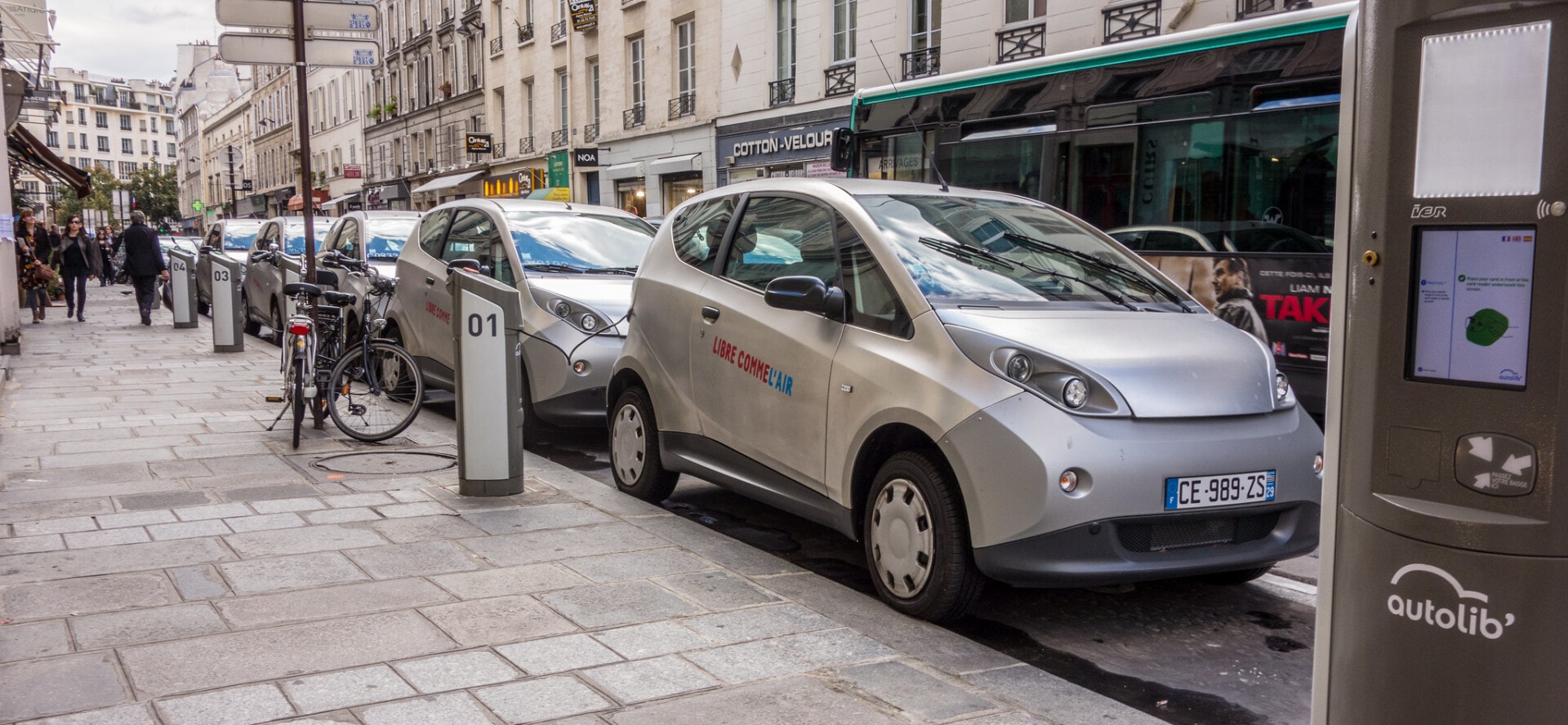Historically, Muslims in France have been subjected to displays of xenophobia and hatred, from French people who hold conservative views on religion and diversity. On top of that, the government has enacted Islamophobic laws against its citizens of Muslim faith, like the 2004 law on the ban of the niqab and burka in all schools and public spaces.
“No one may, in the public space, wear an outfit intended to conceal the face. These practices can constitute a danger to public safety and disregard the minimum requirements of life in society,”
– Law 2004-228 of March 15, 2004, under former French president Jacques Chirac (1932 – 2019).
According to the law, any case of infringement will result in a €150 fine.
More recently, the far-right politician Marine Le Pen has announced that if elected president, she would make wearing the hijab in all public spaces in France illegal. It is important to note that no European country has adopted such a law. During her interview with France Inter on April 12, she confirmed her intentions to ban the hijab in all public spaces and supported her opinion with the example of Habib Bourguiba’s policy of banning the hijab in Tunisia in 1981.
#MarineLePen, a right-wing contender in the upcoming elections in #France has promised to punish Muslims who wear #hijab headscarves in public. https://t.co/r9rCJTHhXL
— Tarek Fatah (@TarekFatah) April 8, 2022
The French Muslim community carries the psychological baggage of experiencing racial prejudice and religious discrimination.
This stigmatization of Muslims in France stems from the various terrorist incidents that have occurred in the country for years. These terrorist attacks by radical Islamists that caused several deaths are still anchored in the minds of French people and gave rise to a “generalization” of all Muslims being possible terrorists, thus giving rise to the implementation of laws that go against certain practices and symbols of Islam, like the 2016 ban on wearing a burkini in public beaches for the reason that it may “cause risks of public order disturbances”.
With the number of Immigrants increasing in France over the past years, Islam and immigration have been the main topics of most political debates and campaigns of this year. It has been noticed that the majority of them were from North African countries. Here are the statistics of immigrants in France by geographical origin in 2020:
The data shows that the major countries of origin for migrants are Algeria and Morocco, with Portugal coming third, followed by Tunisia in fourth place and Turkey in sixth place: This means that most migrants from the top ten countries of origin indeed come from countries where Islam is predominant.
The data below show that France’s current net migration rate is 0.883 per 1000 population, a 9.96% increase from 2021, which is substantial; yet it also signals a slowing down in the growth rate compared to previous years (which was as high as a 14% in 2019). It should be noted however that migration rate data is subject to considerable yearly swings from positive to negative: The years 2017 and 2018 both showed substantial drops in migration rate:
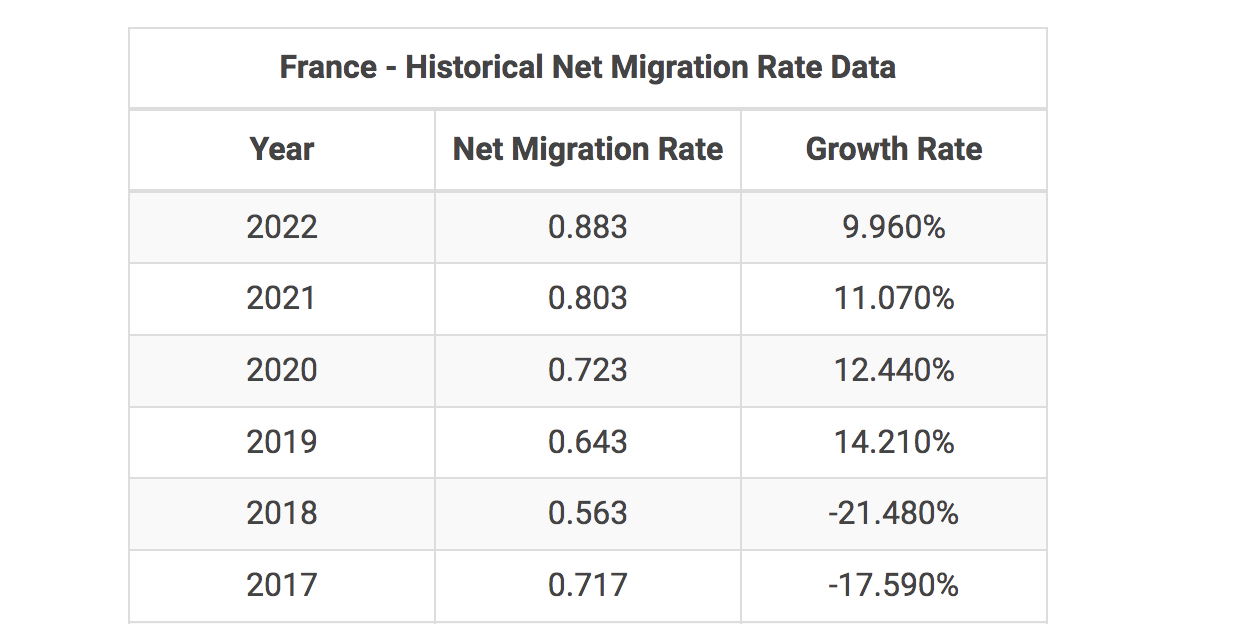
As the immigration crisis that occurred this year was all over French newspapers and media, Eric Zemmour, the new candidate on the extreme right, even to the right of Marine Le Pen, did not fail to express his opinion on the matter.
In January 2022, he said on the French news channel “CNews”, where he works as a news presenter and debater, that minors of black and Arab ethnicity are “murderers” and “rapists,” and that they must be “sent back.” According to him, “In France, all offenders are immigrants or children of immigrants.”
It is important to specify that the “immigrant” category of 2.5 million people includes French people by acquisition (born outside France): They are therefore no longer foreigners. However, they remain, according to the statistics, “immigrants,” locked up or sent back to a category which, far from merging them into French society, specifies their foreignness, at the very least their particularity. In an interview for the “Cité nationale de l’histoire de l’immigration,” the French demographer and historian Hervé Le Bras expressed his point of view on the matter:
“Today one can be French, but French ‘immigrant’. The ‘harmfulness’ of the word is to ‘ignore naturalization’…By reminding the naturalized of his foreignness, we widened, the gap […] between the French by birth and the immigrants.”
This year’s presidential elections are definitely dominated by extremist and conservative views on how the future of French society should be. Marine Le Pen’s plan of action if ever elected as president includes restrictions targeting Muslim women and immigration policies.
Marine Le Pen built her political career on provoking French anti-immigrant sentiment. This time, despite selfies with a girl in hijab – a symbol of immigration for the far-right – and focus on economy, if Le Pen becomes president, she plans to curtail immigrant rights pic.twitter.com/mWQDJkk0aE
— TRT World (@trtworld) April 12, 2022
Regarding the elections, French journalists have described them as having a “toxic political atmosphere” shaped by the proliferation of racist ideas and religious discrimination coming from the conservative right and extreme right.
Éric Zemmour, the French controversial far-right politician, political journalist and writer who is in the fourth position in the final results of the first round of the elections with a total of 7.1% of votes (far behind socialist Jean-Luc Mélenchon who has 22% of votes) is known for holding xenophobic, anti-feminist, anti-muslim, anti-Semitism speeches.
On February 16 of this year, during his appearance on “C à Vous”, Zemmour once again expressed hateful opinions on Muslim immigrants coming to France, saying that many HLMs — low-income housing in France, have become the soil for an Islamization of the country.
“The customs are no longer French. We are invaded by veiled women, men who dress like in the seventh century in Saudi Arabia, we are full with halal shops everywhere, life is no longer the same, we are foreigners in our own country,“ Zemmour said.
He went on to highlight the violence, delinquency, and drug trafficking that are currently increasing in French cities, also claiming that he is for the expulsion of parents of young offenders of foreign origins to ensure security.
Zemmour announced on TV that if ever elected president, he would abolish France’s Pleven Law of 1972, which condemns provocations of hate, racial violence and discrimination. While campaigning in the French presidential elections, he has been sued countless times for incitement to hatred, Islamophobia, and racism.
For decades, Muslims in France have been labeled as dangerous by a lot of French politicians, even more so since the beginning of the term of President Emmanuel Macron. The latter has made the fight against “Islamist Separatism” the main topic of his electoral campaign.
In his first-round speech on April 10, Macron promoted his project of “progress, openness and French and European independence.” His fight for the promotion of the so-called “French Identity” and Secularism has been described as “obsessional” by certain French socialists and journalists.
The French president clarified his secularist ideologies during his speech:
“I want a France which defies Islamist separatism, but which by secularism, everyone is enabled to believe or not to believe, to worship…Not a France that prevents Muslims and Jews from eating as prescribed by their religions, this is not us.”
Here, in mentioning “eating as prescribed by their religions,” the French president is making an allusion to Ramadan, which is the sacred month of fasting, prayer and community for Muslims around the world, and to the Pesach, one of the most sacred period for Jewish people where they celebrate the departure of Israelites from ancient Egypt, which also includes fasting but only for one day, on its eve.
Since the beginning of his journey to a second mandate, French newspapers and political analysts have regularly pointed out Macron’s progressive swing from the center to the right: He has completely distanced himself from the socialist views he relentlessly defended when he got elected as president of France.
On April 24, 2021, the French government imposed the closure of dozens of mosques and Muslim charity organisations in France qualified as “separatist” on the basis of the law on internal security and the fight against terrorism, followed by the implementation of departmental cells to fight against Islamism and communal separatism. As a result, Muslims in Paris gathered to protest against their social exclusion.
This is the reality for many French Muslims, especially for those with low-level incomes — the case of so many new immigrants because of the difficulties of finding a decent-paying job.
As a result, they find themselves part of a society where their beliefs and religious affiliation are considered a disturbance to public order, a danger to other citizens, and a nuisance to the country’s image. These are some of the things they have to deal with:
- The constant flow of racist speeches in the news;
- Discrimination and progressive social exclusion of women wearing a hijab;
- Violence against Muslim men and women who are dehumanized and stigmatized, and often labelled as potential terrorists;
- Abusive denunciations, up to the highest level of the State and mass surveillance devices that lead to outright criminalization of religious practice.
For now, the two contenders in the final round of French elections, Macron and Marine Le Pen, are concentrating on two issues: the crisis in costs of living mainly caused by the spike in fuel prices and France’s place in Europe, with Macron wanting a major role for France in the construction of the European Union and Marine Le Pen wishing for Frexit. One can only hope that the question of Islam will also be put on the table, that it will result in a constructive debate and that it will finally move towards resolution.
Editor’s Note: The opinions expressed here by Impakter.com columnists are their own, not those of Impakter.com — In the Featured Photo: Protest against Islamophobia. Featured Photo Credit: Wikimedia Commons.


